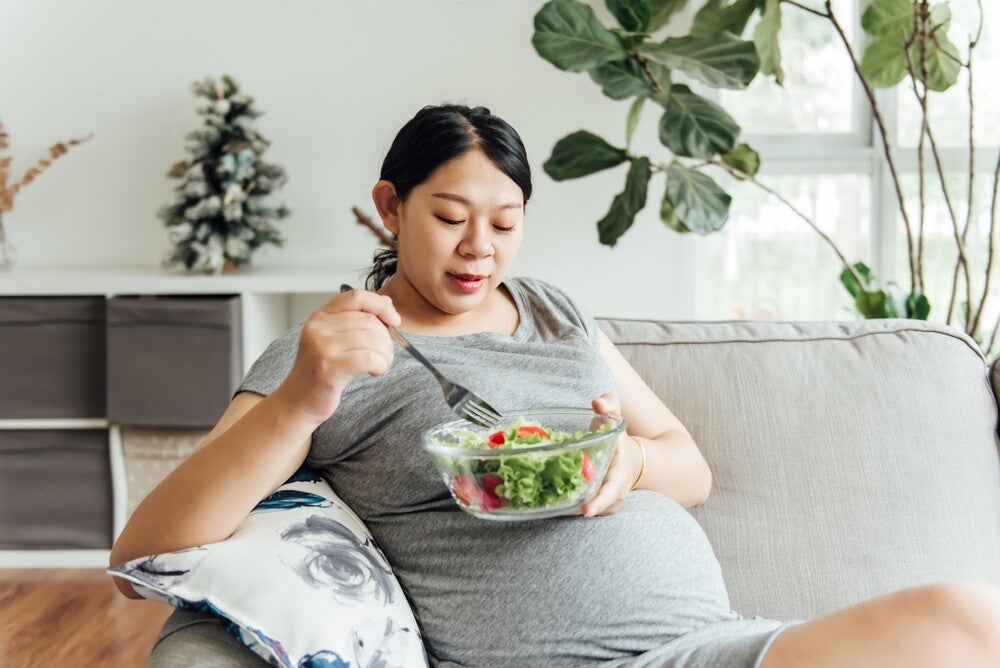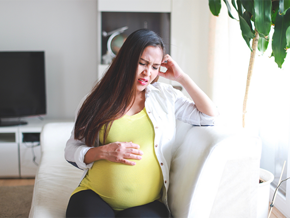
Folic Acid for Pregnancy: When to Really Start and Why It's Essential
One of the best gifts you can give to yourself is to take folic acid regularly. But wait, you're probably thinking, "Isn't folic acid for pregnancy?"
Actually, everyone needs folic acid, which is one of the B vitamins. It helps the body make new cells, including red blood cells and supports DNA synthesis and repair. It is also used to prevent and treat folate deficiency and certain types of anemia.
For women, however, folic acid takes on extra importance during pregnancy because of the vitamin's role in your health and your baby's development in the womb. Keep reading to understand folic acid's role in pregnancy health and how you can make sure you're getting enough of this essential nutrient.
Why Folic Acid Is Essential for Pregnancy
Folic acid is actually the synthetic form of vitamin B9 and used in supplements and fortified products. Vitamin B9 or folate is naturally found in foods like dark leafy greens, citrus fruits, beans, and eggs. Both versions offer valuable benefits for your health.
Folate supports healthy cell growth and early red blood cell production. During pregnancy, your body’s demand for this nutrient increases to support your expanding uterus and the increase in your blood volume.
That need for folate stays high throughout the pregnancy because it also helps your baby’s rapid growth, especially in your first trimester. That's why building up your folate reserves before conceiving can give you an advantage when you become pregnant.
However, folate intake from diet alone is challenging. So, health experts often recommend folic acid supplements or fortified foods to hit the high amount needed while pregnant. Your body absorbs folic acid quickly and doesn't break down as much when cooking or storing food.
What Happens if You Don't Take Folic Acid While Pregnant
If you're taking folic acid for pregnancy, you reduce the chances of your baby developing neural tube defects (NTDs).
Without enough folic acid, the cells in the developing neural tube can’t grow or close properly. This can lead to conditions like spina bifida for your baby, where the spine doesn’t form as it should, or anencephaly, where parts of the brain or skull are missing.
NTDs happen early in pregnancy, often before a woman even knows she’s expecting. That's why the World Health Organization advises women to take folic acid at least one month before conception and during the first trimester alongside a folate-rich diet to reduce the risk of these congenital disabilities.
How Much Folic Acid Should You Take

Folic acid or vitamin B9 is naturally found in many vegetables such as okra and lettuce.
Based on the Philippine Dietary Reference Intakes (PDRI), created by the Food and Nutrition Research Institute (FNRI) of the Department of Science and Technology, you need 600 mcg DFE (dietary folate equivalent) daily of natural food folate and folic acid daily if you're pregnant. PDRI puts the maximum folate intake at 1,000 mcg DFE a day.
Since it can be tough to get that much from food alone, WHO and other health authorities recommend taking a daily folic acid supplement of at least 400 mcg.
You can visualize just how much folate you'd need to eat each day to meet the recommended amount with this sample list of common foods and their folate content.
Vegetables
- 1/2 cup okra cooked (135 mcg)
- 1 cup spinach (100 mcg)
- 1 cup lettuce (40 mcg)
- 1 big corn on a cob (55 mcg)
- 1/2 cup mustard greens or dahon ng mustasa (90 mcg)
Fruits
- 1 avocado (162.8 mcg)
- 1 cup fresh orange juice (80 mcg)
- 1/2 cup raw papaya (27mcg)
- 1 medium banana (24 mcg)
Beans and legumes
- 1/2 cup kidney beans cooked (115 mcg)
- 1/2 cup peanuts (105 mcg)
You can get your daily dose of folate by eating some organ meats (papaitan, lengua), a plate of green vegetables, some green salad and two or three pieces of fruit. Include a large plate of legumes (munggo, red beans) and/or cereals in your menu several times a week, along with eggs and cheese.
When you're at the grocery store, look for food rich in folic acid (they'll have labels like "fortified" or "enriched"). These often include flour, pasta, bread, rice, and breakfast cereals.
When Is the Best Time to Take Folic Acid for Pregnancy

Follow your doctor's prescription for folic acid intake.
Most nutritionists recommend taking folic acid in the morning for better and more efficient absorption since digestion slows at nighttime. Since these B vitamins can also stimulate metabolism and brain function, taking them at night might make it harder for you to sleep. Here are a few other things to keep in mind:
- Take folic acid before a meal to make sure it is fully absorbed in the system.
- If you miss a dose, have it as soon as you remember, but it's ideal to stick to the same time each day.
- Since folic acid is a water-soluble vitamin, take it with a glass of water to help your body absorb it better.
Folic Acid's Possible Side Effects
While folic acid is essential, taking more than your doctor's recommended dosage can cause side effects. Here's what pregnant women should watch out for:
- Unpleasant or bitter taste in the mouth
- Nausea
- Loss of appetite
- Bloating or gas
- Stomach pain
- Irritability
- Sleep problems
- Mood changes
- Confusion or trouble concentrating
Although rare, too much folic acid can also lead to allergic reactions, such as:
- Hives
- Skin rash
- Itching
- Redness
- Swelling of face/lips/tongue/throat
- Difficulty breathing
You may have heard that another possible side effect of folate is it may "hide" vitamin B12 deficiency. But, as Harvard T.H. Chan School of Public Health reports, high folic acid intake means taking over 1,000 mcg daily, well beyond the recommended dose for pregnant women.
The Centers for Disease Control and Prevention also points out that today’s lab tests can check how much vitamin B12 someone has in their system.
Work With Your Doctor
Always consult with your doctor about taking folic acid for pregnancy. They’ll help you determine the right amount based on your needs and ensure you're safely meeting your daily requirements. Remember, you’re also likely getting additional amounts from fortified foods and naturally occurring folate in your diet.
Find a doctor you can trust because the proper guidance can make all the difference in having a strong and healthy pregnancy.
Learn more about iron-rich foods for a stronger pregnancy next. Enjoy this exciting time with fellow moms-to-be at ParenTeam's Facebook group!
References
“Folic Acid for a Healthy Baby,” Johns Hopkins Medicine, November 18, 2024, https://www.hopkinsmedicine.org/health/conditions-and-diseases/folic-acid-for-a-healthy-baby.
Mayo Clinic. “Folate (Folic Acid),” August 10, 2023. https://www.mayoclinic.org/drugs supplements-folate/art-20364625.
National Institutes of Health. “Office of Dietary Supplements - Folate.” National Institutes of Health Office of Dietary Supplements, November 22, 2022. https://ods.od.nih.gov/factsheets/Folate-HealthProfessional/.
OASH | Office on Women’s Health. “Folic Acid | Office on Women’s Health,”
December 19, 2024. https://womenshealth.gov/a-z-topics/folic-acid.




























